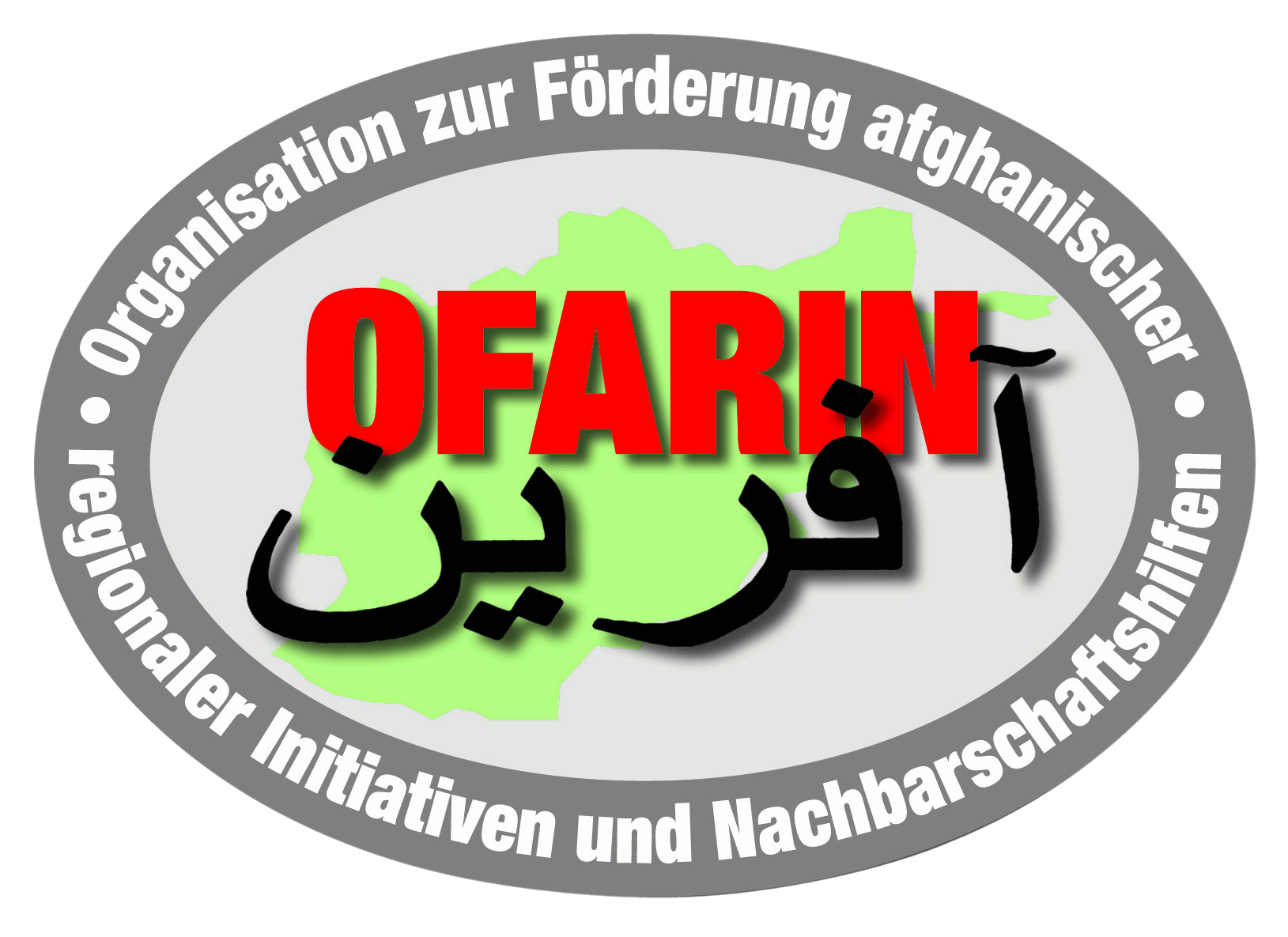


The status of OFARIN's teaching
Every aid organization that works officially in Afghanistan must be registered with the Ministry of Economy. This also involves cooperation with the Ministry of Finance, as the aid organization is obliged, for example, to discharge the taxes of its employees and landlords and to submit audited financial reports.
In addition, every aid organization must cooperate with specialist ministries that supervise their projects. For example, the Ministry of Agriculture is responsible for OFARIN's reforestation activities in Khost province. A midwifery program would have to take place in cooperation with the Ministry of Health.
For a long time, many things were possible for the ministerial partnership with teaching programs of aid organizations. Teaching programs took place in cooperation with the Ministry of Education, but also with the Ministry of Labor and Social Affairs, the Ministry of Border Areas and the Ministry of Agriculture.
OFARIN's teaching program began under the "old Taliban" in 1998 in partnership with the ministry responsible for the mosques (referred to here as the Mosque Ministry for short). The initiative for this came from the leadership of this ministry. At that time, schooling for girls was completely forbidden. This ban was circumvented by holding classes in mosques. So, the lessons were no longer school lessons, even if the curriculum was the same as in the boys' schools.
After the Taliban fled in 2001, we wondered whether we should continue the teaching program. After all, all children could now go to the state school. But the new leadership of the mosque ministry urged us to continue our work in partnership with them in the mosques. Parts of the population are still influenced by the long cultural struggle in Afghan society. ["What is this again?" - See: "Afghan schools on a divided social basis"]. Conservative families would not send their children to state schools because they had been persuaded that this was against Islam. For these families, there would be no inhibition threshold to send children to the mosque, even if the same things were taught there as in state schools. This assessment by the leadership of the mosque ministry was correct.
But we also wanted to give pupils who went to the state school the opportunity to attend OFARIN lessons. So our lessons became a supplement to the state school. But more than 90 minutes of lessons were hardly possible for OFARIN, because many of our students also went to state school for four or more hours a day.
School attendance is officially compulsory in Afghanistan. But it is not enforced. Officially recognized schools in Afghanistan are the schools run by the Ministry of Education, private schools that charge their pupils fees and schools run by aid organizations. All these schools are obliged to implement the teaching program of the Ministry of Education. Only attendance of the twelve classes of an officially recognized school entitles students to take the national entrance examination for further education (at a university, teacher training college, midwifery school, etc.). In Afghanistan, the state is the largest employer. Anyone who wants to join the civil service must prove that they have attended an officially recognized school for six, nine or twelve years, depending on the job. OFARIN's lessons are therefore recognized as supplementary lessons but not as official lessons. Our lessons are also monitored by the partner ministry.
It soon became apparent that OFARIN's lessons in the mother tongue, in mathematics and even in religion are far more successful than those in officially recognized institutions. Pupils who have only attended our classes for two or three years can take an exam for admission to an officially recognized school. As a rule, they are immediately placed in the upper level there.
Why many pupils don't just come to us and later take a transfer exam to a state school is inexplicable. Presumably the prospect of a transfer exam and the permanent offer of foreign education is too uncertain for them.
OFARIN's cooperation with the mosque ministry has been amicable for many years. It is possible to work together with mullahs. This should be done, because the Islamic clergy is a strong force in Afghan society. Progress can only be made with the mullahs, not against them.
In 2023, the Taliban government decreed that all aid organizations providing education must work in partnership with the Ministry of Education. The cooperation with OFARIN was welcomed by the ministry officials, who were already familiar with OFARIN's lessons, for example because they live in districts where our lessons take place.
So far, OFARIN's lessons are only a supplement to the state school. But in terms of its quality, our lessons are suitable for becoming a model for a thorough reform of the incredibly poor state education system. However, schools and education – especially the education of girls and women – are currently highly controversial within the Taliban movement. The directions are blocking each other. [See: "Afghan schools on a divided social basis"!] OFARIN is continuing its current program as best it can. Major changes to the program, or even attempts to change the status of our teaching, do not make sense at the moment.